
Central heating and air conditioning systems produce warm or cold air, which is distributed around the house via ductwork. Ducts are made of metal, so the slightest disturbance can cause a sound to emanate from the ductwork. A loud and frequent ductwork noise is annoying and prevents homeowners from living their lives normally, especially when trying to sleep. This article discusses the reasons for these HVAC system noises and what can be done to reduce them.
Possible Reasons Behind Ductwork Noise
Contents
Noise from your HVAC ducts is caused by several reasons. If you listen closely, you can identify the types of sound your ducts produce. You may not see the problem, but hearing the noises will give you an idea. Banging noise from your HVAC ductwork is one of the most common noises we handle.
Ductwork Is Banging
A few homeowners state that they hear popping and banging noises coming from their ductwork. These sounds usually happen in short bursts. They happen because of the pressure fluctuations that occur when the ductwork walls expand, and contract from changes in internal temperature occurs. Take note that hot air can cause duct expansion, while cold air causes ducts to contract. The human eye may not perceive this, but you can hear it happening a few minutes after switching on your heating or cooling system.
Causes For Additional Ductwork Noises
Aside from banging and popping, the ducts can produce other noises. Here are several common ductwork sounds and what causes them:
Rattling Ductwork
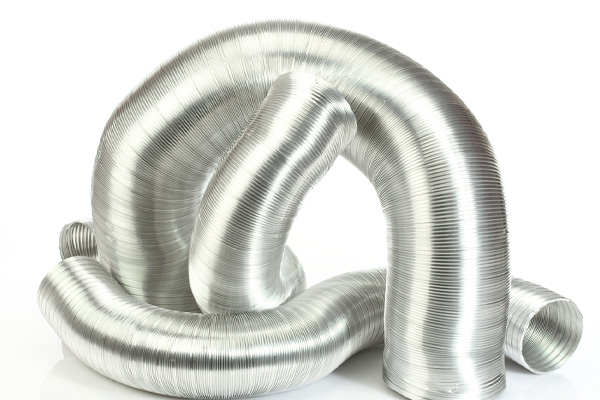
Rattling coming from inside your air ducts is likely because of loose metal components. These loose parts knock against one another, causing the noise. This is more likely to occur as the duct ages. The seals start failing, and the connections get loose because of the static pressure. You will hear rattling as long as air moves across the ducts. It may be soft at first, but the sound will get louder over time until it cannot be ignored anymore. Have an HVAC professional help you find and resolve the problem.
Booming HVAC Ductwork
This loud noise may be heard at the connection of the plenum and the duct’s trunk. This area experiences the most significant temperature changes. The noise will reverberate throughout your home via the supply ducts if the junction has insufficient expansion joints or dampers. Experienced and trained installers know this can occur, so they do all they can to reduce noise from this connection.
HVAC Ductwork Is Shaking
You may sometimes see and hear the ducts vibrating or shaking with a low hum. This frequently happens when a dirty air filter blocks the airflow from the return side. The air cannot pass through, so the pressure plummets, causing the duct walls to shake and vibrate. Make it a habit to inspect the air filter’s condition. If it gets too dirty, clean it or change it with a new one. This way, the ducts run more quietly, and the system maintains high efficiency.
Scratching Ductwork
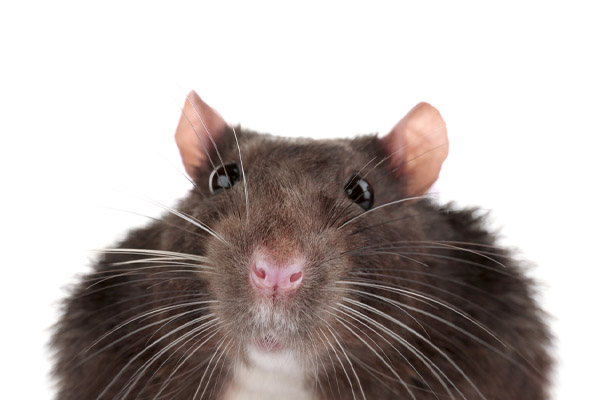
Another unwelcome sound from air ducts is scratching noises. If you hear scratching on the metal walls, creatures like rats, squirrels, and raccoons have likely entered the system. Act swiftly, or these creatures may create a nest and make your system their home. This can negatively impact indoor air quality. A buzzing noise from your ducts can be caused by bees or other flying insects trapped inside. Get an HVAC technician to help you.
How to Reduce HVAC Ductwork Noise
There is no need for homeowners to endure the noise. Foreign objects and creatures can be removed from the ducts. Reliable HVAC contractors can fix any issues. The loudness of the noise from the system’s normal operations can be reduced, so it becomes bearable if you want a quiet home. Listed below are some of the steps you can take to do this:
Adjust The Fan Speed
Installers can determine the airflow volume at the start. Every system has an optimum range that can be determined after accounting for several factors. They typically set the speed too high. Lower the fan speed to reduce the static pressure if this is the case in your home. Ask an HVAC technician for professional assistance because a too-low fan speed setting can make it hard for conditioned air to get to specific rooms.
Change the Air Filters
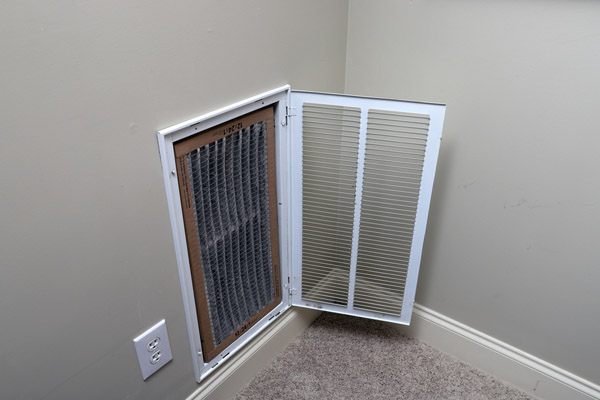
Keep watch of your filters. They trap the dirt while letting air pass through. It becomes harder for the air to pass the more dirt the filters catch. The air filters require replacement every two to three months to ensure good airflow and efficiency. However, some homes have pets or are in dusty locations, so the filters may need to be changed every month. How often you need to change the filter depends on your specific home situation. A clean filter keeps popping and banging noises from occurring. Air filters are pretty cheap. Buy them immediately so your HVAC system has better performance.
Install Larger Ducts
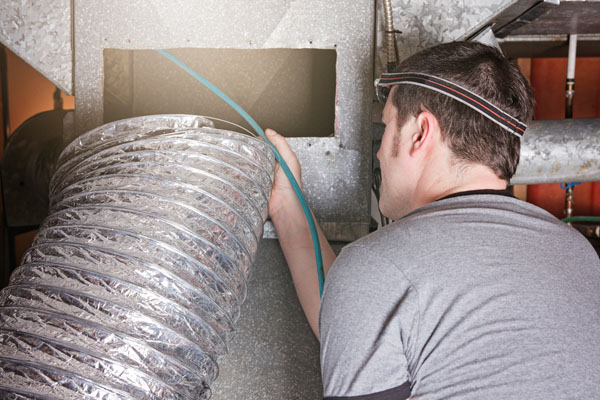
There is a chance that your ducts are too small to deal with the air volume your system needs to operate well. Your HVAC units may be correctly sized, but problems will still arise if the ducts are too small. Consult your trusted HVAC technician so they can look into the matter. Larger vents help lessen the noise, as does a larger return and supply plenum. Match them with high-velocity grills and registers to achieve improved airflow.
Add a Bypass Duct
Use a bypass duct to reduce the pressure if there is a lot in a multi-zone system. Reducing the pressure is an excellent method of eliminating the extra stress on your ducts and preventing common problems. However, it will only work in some cases. Talk to an HVAC expert to see if this option matches your ducts.
Use Another Duct Shape
Think about the shape if you’re installing new ducts. The popular choice is rectangular ducts because they have clean lines and a slim profile. Unfortunately, they are likely to generate more noise than their round counterparts because they have lower pressure tolerance. It is worth looking at if round ducts can fit in your home. Discuss it with a local HVAC company.
Use a Duct Silencer
Round ducts can be installed with duct mufflers to reduce the noise they emit. Duct mufflers can dampen vibration thanks to their double-wall design and built-in insulation. They work best when installed close to the fan, the air handling unit, and other parts making the most noise. However, remember that this only reduces unwanted noise and cannot remove it completely.
Insulate the Ducts
Improve your ducts’ energy efficiency by wrapping them in insulation. This also assists in reducing noise, particularly the popping and banging sounds. Let a certified HVAC tech handle this job to get the best results.
Switch to a Ductless System
If you are still unsatisfied even after putting the above-mentioned noise reduction strategies in place, consider removing the need for ducts with a ductless mini-split system. Switching to this type of system means you become entirely free from ductwork noise and upkeep. It also has other benefits, like independent temperature control, creating multiple zones, and achieving better energy efficiency.
Conclusion
Ductwork noise can be due to various reasons. Sometimes they are caused by underlying problems like loose connections, ductwork leaks, pest infestation, or incorrect system configuration. The noise in these situations alerts homeowners about an issue that needs to be checked. However, there are times when the noise is part of the system’s regular operation. The noise may not be eliminated entirely, but you can take steps to reduce the loudness and frequency. Consult your HVAC contractor regarding the best solutions for your system.
Call PFO Heating & Air Conditioning For All Your HVAC Requirements
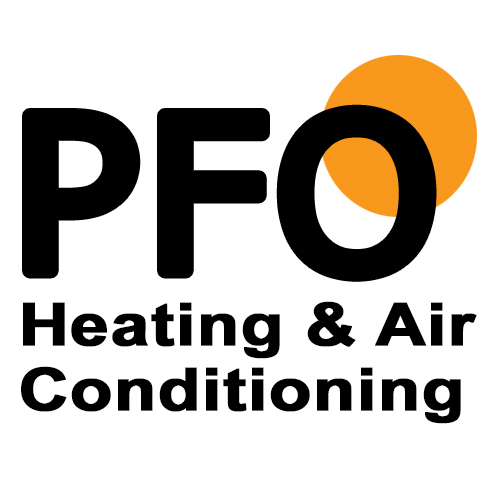 PFO Heating & Air Conditioning provides high-caliber HVAC services in the greater Hamilton, New Jersey area. We employ only the best professionally certified technicians who can do excellent heating and cooling repairs, replacements, installations, and maintenance. All our experienced, skilled, and knowledgeable technicians can service your HVAC system correctly.
PFO Heating & Air Conditioning provides high-caliber HVAC services in the greater Hamilton, New Jersey area. We employ only the best professionally certified technicians who can do excellent heating and cooling repairs, replacements, installations, and maintenance. All our experienced, skilled, and knowledgeable technicians can service your HVAC system correctly.
Our company guarantees the locality’s most competitive heating and cooling service costs. Our tune-ups can help you achieve better comfort and increase energy efficiency while reducing your home’s expenses. If you need an HVAC repair or replacement system, we can suggest the best one for your home within your budget. As always, all our work comes with a guarantee because your satisfaction is our priority. To schedule a service appointment, do not hesitate to give PFO Heating & Air Conditioning a call. We offer free, in-home estimates. Call now!
Click here to contact us now or call us at (800) 253-9001 to find out more! Click the link to view our service area.



